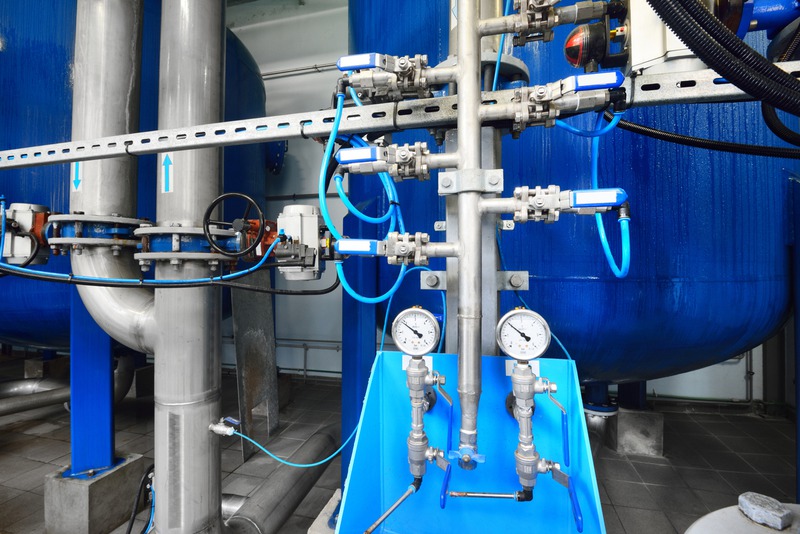Energy efficiency is a hot topic these days, especially when it comes to appliances that are in nearly constant use, like purification systems. Everyone wants their air and water to be clean, but no one wants to see their electricity bill soar. Modern purification systems are designed to address this very concern, combining cutting-edge technology with eco-friendly features to keep energy consumption manageable. This article explores whether these systems are truly living up to their energy efficiency promises and what features make a difference.
Are Modern Purification Systems Energy Efficient?
Generally speaking, modern purification systems are considerably energy efficient compared to their older counterparts. Thanks to advancements in technology, these systems can operate effectively with less power consumption. Many models are equipped with smart features like sensors that activate the system only when it detects pollutants, which minimizes unnecessary energy usage. Furthermore, energy-saving modes offer additional ways to keep costs down without compromising on performance.
Energy-Saving Features in Modern Systems
To meet energy efficiency standards, these purification systems incorporate various features designed to optimize performance while using minimal power:
-
Smart Sensors: Detect air or water quality changes, activating the system only when needed.
-
Advanced Filtration Technology: Newer filters require less energy to function efficiently.
-
Low-Power Modes: Provide energy-saving settings without sacrificing purification quality.
-
Efficient Motor Design: Modern motors consume less power, making them more eco-friendly.
-
Compatibility with Renewable Energy Sources: Some systems are designed to work well with alternative energy setups.
Water Purification Systems and Energy Efficiency
Water purification systems have made strides in energy efficiency as well. Processes such as reverse osmosis have been optimized over time, and ultraviolet purification uses minimal energy to operate. Some brands offer solutions that integrate well with home energy management systems, allowing for better power optimization. Systems featuring advanced filtration technology, for instance, can effectively cleanse water without excessive energy use. Investing in reliable systems, like those found with water filtration at Purahome, ensures effective purification and better energy efficiency.
Balancing Costs with Benefits
When considering energy-efficient purification systems, the initial cost might be higher than less efficient models. However, the savings on energy bills often justify this initial expense. Over time, the reduced electricity usage leads to lower utility costs, making these systems a smart investment. The balance between upfront cost and long-term savings is a critical consideration for anyone contemplating an upgrade or first-time purchase.
-
Lower Monthly Energy Costs: Expect energy savings over time to offset initial investment.
-
Reduced Carbon Footprint: These systems contribute to sustainable living by reducing energy use.
-
Long-Term Financial Benefits: Despite higher upfront prices, lower operational costs make them cost-effective in the long run.
Comparing Various Purification Systems
To choose the best purification system, it’s beneficial to compare energy efficiency ratings alongside performance capabilities. Systems equipped with sophisticated technologies that reduce energy consumption without compromising on purification quality stand out. For instance, air purification systems utilizing HEPA filters can be energy-efficient while delivering excellent results. The options vary widely, so understanding what each system offers in terms of energy efficiency can guide you toward the right model.
Favorable competition in the market ensures many purification systems come with impressive and energy-efficient features. Whether it’s systems utilizing sustainable energy sources or innovative purification processes, choosing the right product requires assessing specific needs alongside available technologies. Companies specializing in purification solutions, such as a trusted water air purifier company, can offer products that align well with these energy efficiency goals.
Looking for Certifications and Industry Standards
When considering energy-efficient purification systems, certifications like Energy Star serve as reliable indicators of a product’s effectiveness. These certifications set the benchmark for energy efficiency, ensuring that a product meets or surpasses stringent guidelines. Selecting a certified product offers assurance in its performance capabilities and alignment with energy-saving efforts.
Additionally, consumer reviews and energy consumption ratings are valuable resources. They provide insight into how systems perform in real-world settings, helping you make an informed decision. Taking time to research these elements can bolster confidence in your purchase, ensuring your chosen system meets energy efficiency expectations.
Opt for Eco-Friendly Choices
For those committed to environmentally-conscious living, energy-efficient purification systems are a viable option. They deliver essential benefits, such as clean air and water, without excessive power use. Choosing such systems aligns with broader commitments to sustainability, helping reduce the overall carbon footprint of your household. Complementing these systems with eco-friendly peripherals, like compatible EMF products, can further enhance sustainable living by minimizing exposure to electromagnetic fields.
Opting for eco-friendly purification systems goes beyond current trends. It embodies a long-term vision for improved resource management. Informed decisions benefit not only personal environments but also support societal progress toward sustainability.
Final Thoughts
Modern purification systems stand out for their energy efficiency, thanks to advanced features and design improvements. These systems offer clean air and water while minimizing energy consumption, appealing to consumers focused on sustainability and cost-efficiency. When combined with eco-friendly practices, they contribute positively toward a more sustainable future. By carefully selecting a system with appropriate energy-saving functionality, consumers can enjoy healthier living conditions without imposing a strain on their energy resources or the environment.



